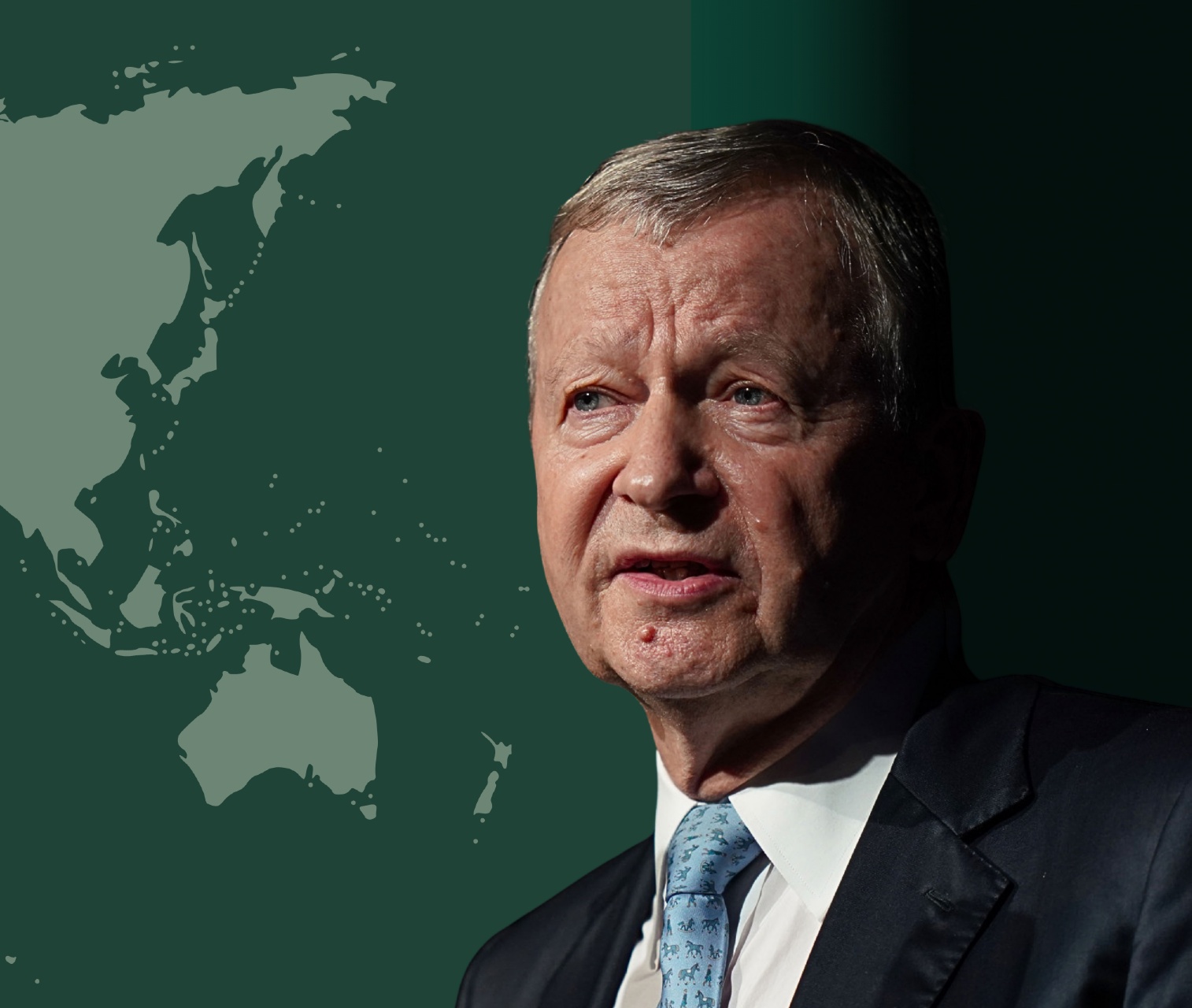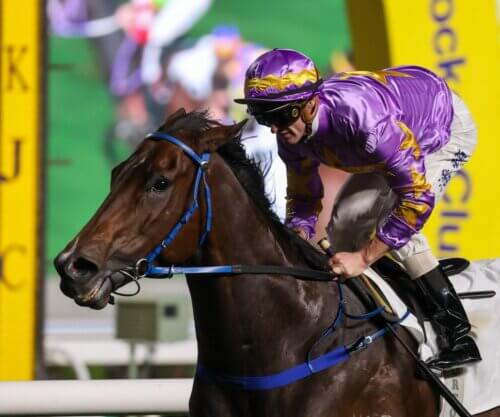The Hong Kong Jockey Club’s Battle With Illegal Betting
A chance encounter with an underground bookmaking ring opened the eyes of future HKJC chief Winfried Engelbrecht-Bresges – but as crypto turbocharges a trillion-dollar shadow economy, the fight has grown more urgent.
The Hong Kong Jockey Club’s Battle With Illegal Betting
A chance encounter with an underground bookmaking ring opened the eyes of future HKJC chief Winfried Engelbrecht-Bresges – but as crypto turbocharges a trillion-dollar shadow economy, the fight has grown more urgent.
3 October, 2025IT WAS A RAINY NIGHT in Kowloon when a quick detour to find shelter gave future Hong Kong Jockey Club CEO Winfried Engelbrecht-Bresges a unique insight into the scale of illegal football betting in his adopted city. The then-head of racing scrambled to take cover and inadvertently stumbled into a room where bookmakers were operating. For a moment, the bookies thought they were being raided.
“I ran into a bar restaurant. When I came in, panic! Fifteen betting counters, computers, people lining up and typing bets on the English Premier League,” Engelbrecht-Bresges recalled. “First I thought they thought I was from the police, undercover. I was a little bit worried. It was very visible.”
That serendipitous moment brought into focus the size of the illegal betting economy. The Jockey Club would later seek government approval to introduce legal football betting as a way to channel this demand away from criminal operators.
Despite that move the illegal market has continued to thrive, and in recent years crypto has acted as what Engelbrecht-Bresges calls “an accelerant” for the illegal market, particularly for young people. “A lot of the offshore or illegal market has grown by 50–60 percent in the last three years, four years. With crypto, some have grown by 90–100 percent – and that’s a start,” he said. “Crypto has been an accelerant for a lot of younger people to use offshore illegal websites, because payment is easier.”
Younger punters, already fluent in digital wallets and crypto trading, are easily drawn to unlicensed platforms that promise anonymity and better odds because they make no tax contribution. For many the absence of a traditional banking system is not a deterrent: it may even be part of the appeal.
The “real market” is difficult to measure but undeniably vast. The United Nations estimates the illegal betting economy at more than USD 1.7 trillion a year. Asia remains central to the system, with syndicates in the Philippines, Cambodia and across Greater China now regularly using crypto as the default settlement tool.
A Singapore case in 2023 showed just how high the stakes have become. Ten people were jailed in the city’s largest ever money-laundering case after authorities seized assets worth more than USD 2 billion, from Ferraris and Rolls-Royces to gold bars and hundreds of luxury handbags. The wealth was traced back to illegal betting networks that operated across China, Cambodia and the Philippines, shell companies using crypto accounts to wash the profits.
For Hong Kong the challenge is how to channel demand away from these sprawling crypto-driven networks and into the legal system. That is why in 2003 the Jockey Club secured government approval to launch legal football betting, a move designed explicitly to pull punters out of the Kowloon backrooms Engelbrecht-Bresges had stumbled upon. More than two decades on, football betting turnover now exceeds HKD 170 billion annually, surpassing horse racing, with tax contributions climbing to HKD 29 billion a year.
More recently Engelbrecht-Bresges has warned of a similar explosion in basketball betting, particularly on the NBA, Chinese and European leagues. The HKJC estimates the illegal basketball market in Hong Kong alone is worth between HKD 50-70 billion a year. To counter this the Club is pushing for government approval to offer legal basketball betting, hoping to replicate the success of football in diverting demand away from criminal syndicates.
But Engelbrecht-Bresges is clear-eyed about the scale of the threat. As long as offshore platforms can offer anonymity through cryptocurrency, unlimited credit, and tax-free odds, Hong Kong’s regulated system will be in a constant fight to keep pace. “If you don’t offer it, you lose them,” Engelbrecht-Bresges said of younger bettors. “For our long-term strategy to channel gaming demand, it is very important.”

What began with a chance dash through a rainstorm in Kowloon has become one of the dominant themes of Engelbrecht-Bresges’s tenure: how to keep one step ahead of illegal bookmakers. The backroom has become a blockchain and the shadow economy has scaled to the trillions. For Hong Kong the stakes are existential – and for the rest of the world, a test case. Can a tightly regulated, government-backed operator keep pace with a crypto-fuelled ecosystem that moves faster than regulators can write rules?
These challenges will be at the forefront of the 59th International Conference of Horseracing Authorities in Paris on October 6. The afternoon session will directly address the growth of the illegal betting market and the challenges of betting regulation, with speakers including representatives from the Hong Kong Jockey Club, British Horseracing Authority, World Lottery Association, UEFA, and the IFHA’s Council on Anti-Illegal Betting. The IFHA Council itself has become a global hub for thought leadership since its transition from the Asian Racing Federation in 2024, building connections with INTERPOL, the United Nations, and other international bodies to educate governments and coordinate law enforcement engagement.
Reflecting on the upcoming Paris discussions, Engelbrecht-Bresges underscored the urgency. “When you look at the predictions and the significant threat already to racing, it has even increased massively. And as I mentioned that with crypto, you completely bypass any controls in the banking system, this is another massive threat for racing. That’s why we think it’s important we have a clear focus on this. For the long-term sustainability of sports it is essential, because there is a significant integrity risk.” ∎





